FAST
FACTS
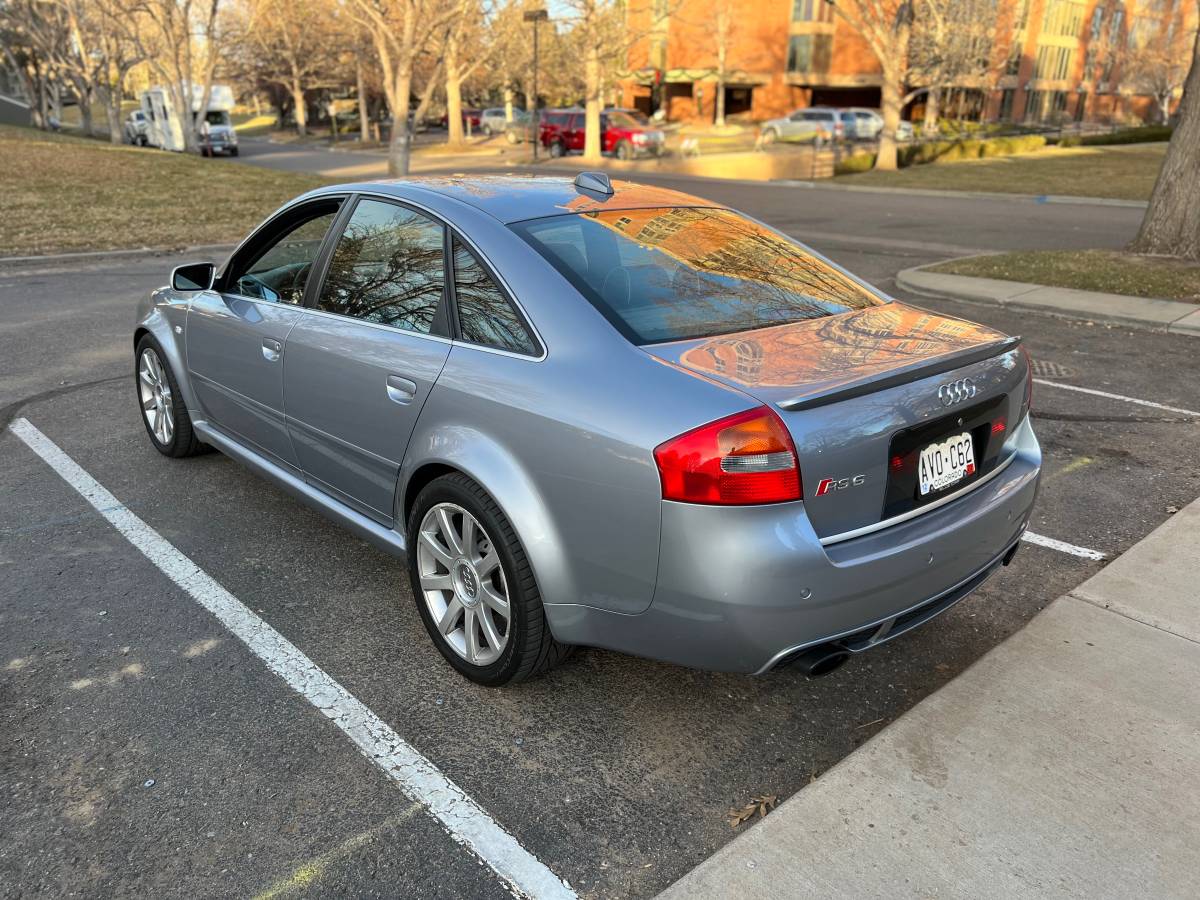
- This is the first RS Audi sold in America. Audi claims the car was inspired by the company’s Le Mans-winning R8 race car, while road test editors called it a “DTM car for the street”
- The hood and fenders are aluminum, as well as the suspension, internal body structure, and front and rear subframes. These lightweight parts help counterweight the car’s 3 differentials, including the Quattro Torsen ATB center diff. Curb weight is 4,000 lbs
- The quad-cam Bi-turbo V8 was developed in partnership with Cosworth Technology (now known as Mahle Powertrain). Based on the A6/S6 V8, it features a forged steel crankshaft, modified high-flow cylinder heads with sodium-filled exhaust valves, and 5 valves per cylinder. The Bi-Turbo setup uses twin intercoolers and pushes 11.6 pounds of boost. The advanced turbo system helps create an incredibly wide powerband – peak torque is produced for nearly 4,000 RPM!
- These engines utilize timing belts rather than timing chains. While it requires a regular belt change interval, it forgoes the plastic timing chain guides that were known to crack prematurely on European V8s of this era
- The 5spd automatic is shared with Audi’s 414hp W12-powered A8 from Europe. Audi claims there was no manual transmission under VW’s corporate parts bin that could handle this much power and torque in 2003
- One of the most unique features on the RS6 is Dynamic Ride Control (DRC), a completely new suspension technology for Audi that uses virtually no electronics (essentially the same system Yamaha developed for its racing bikes)
- A central reservoir connects each shock hydraulically to the shock on the diagonally opposite corner of the car. When the car enters a bend, the inside-corner shocks de-pressurize and send the unused fluid to pressurize and stiffen the outer shocks. The near instantaneous process reduces body roll and pitch (as well as nose dive during hard braking)
- The front wheels feature 8-piston Brembo monoblock brake calipers over 14.4″ rotors (rears are 13.2″). The system utilizes a floating setup where the rotor (“friction ring”) mounts to an aluminum hub via 14 pins. The pins allow the rotor deflect up to one millimeter during hard braking – this allows the rotor to remain in perfect alignment with the pad surface under extreme conditions (rather than bounce off the pad, known as pad knock-back). The design reduces both unsprung weight and operating temperatures
Key Model Year Changes:
- This C5 generation is a one-year only model. Only around 870 cars were imported to the U.S
Specs:
4.2L Twin Turbo V8 | 5spd ZF Auto |
450 hp between 5700 and 6400 RPM | 415 lb/ft torque @ between 1950 and 5600 RPM |
0-60 MPH: 4.3 seconds | Top Speed: 174 MPH |
Base Price in 2003: | $82,700 |
– Click for shipping quote –
Model year pictured: 2003
Mileage: 51,000

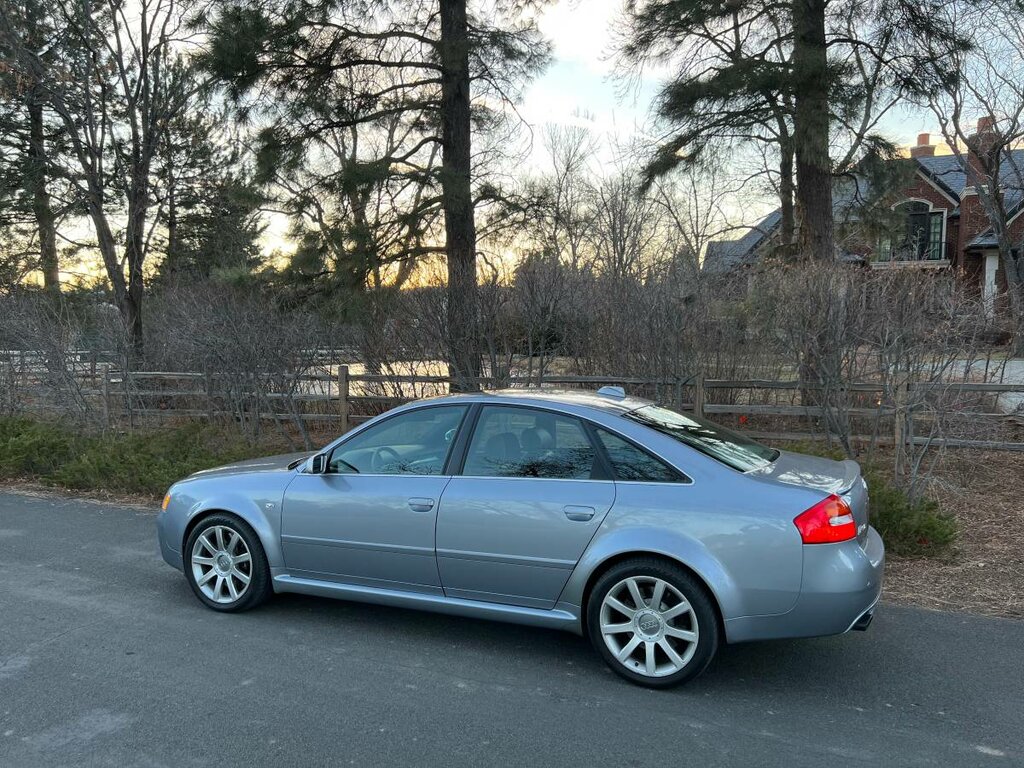
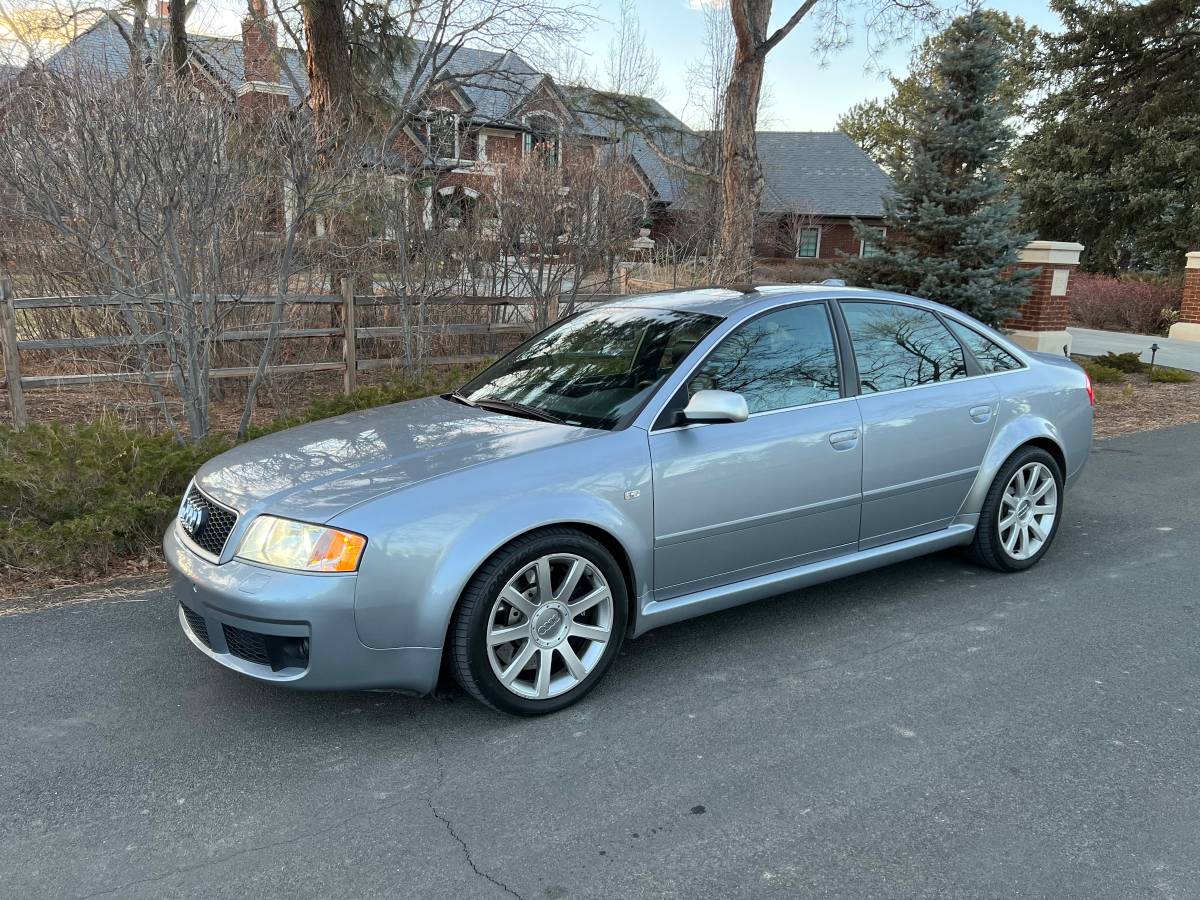
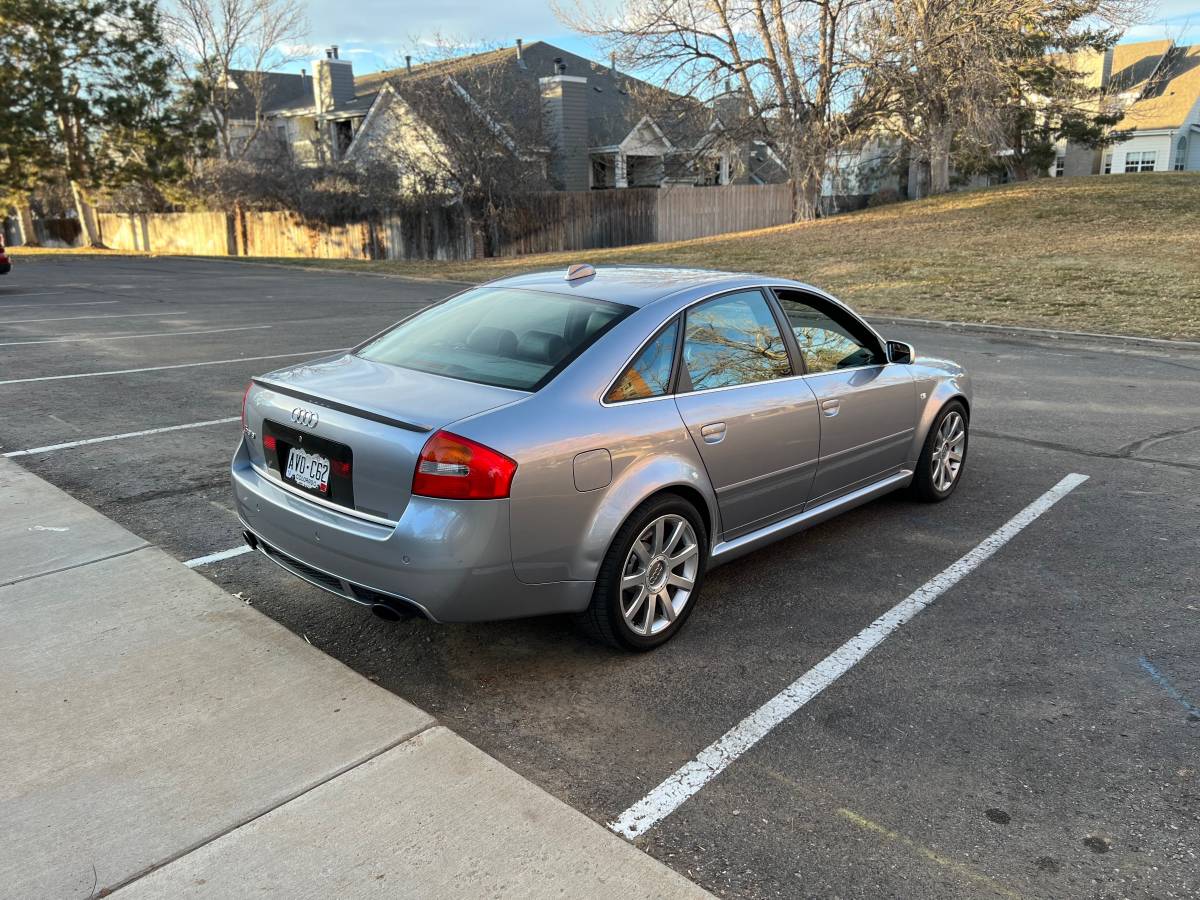
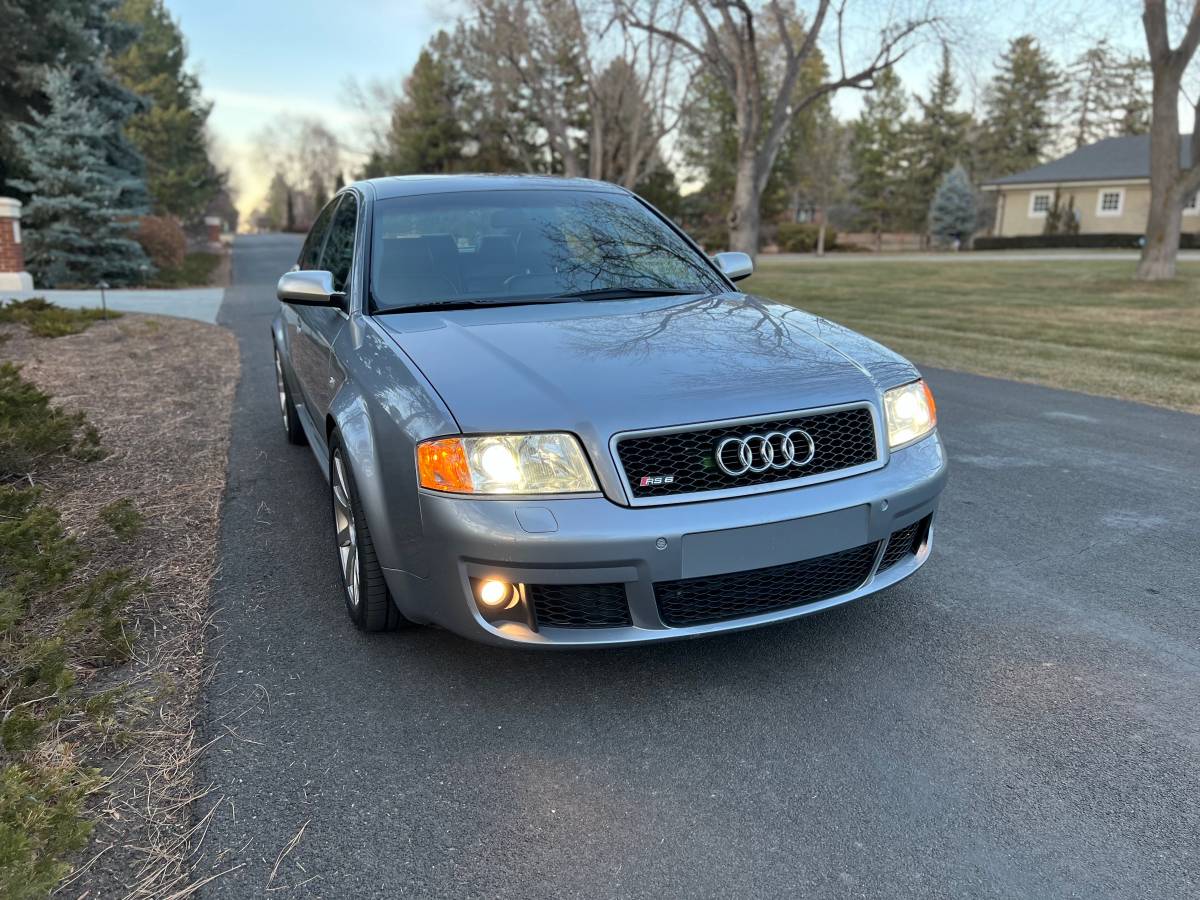
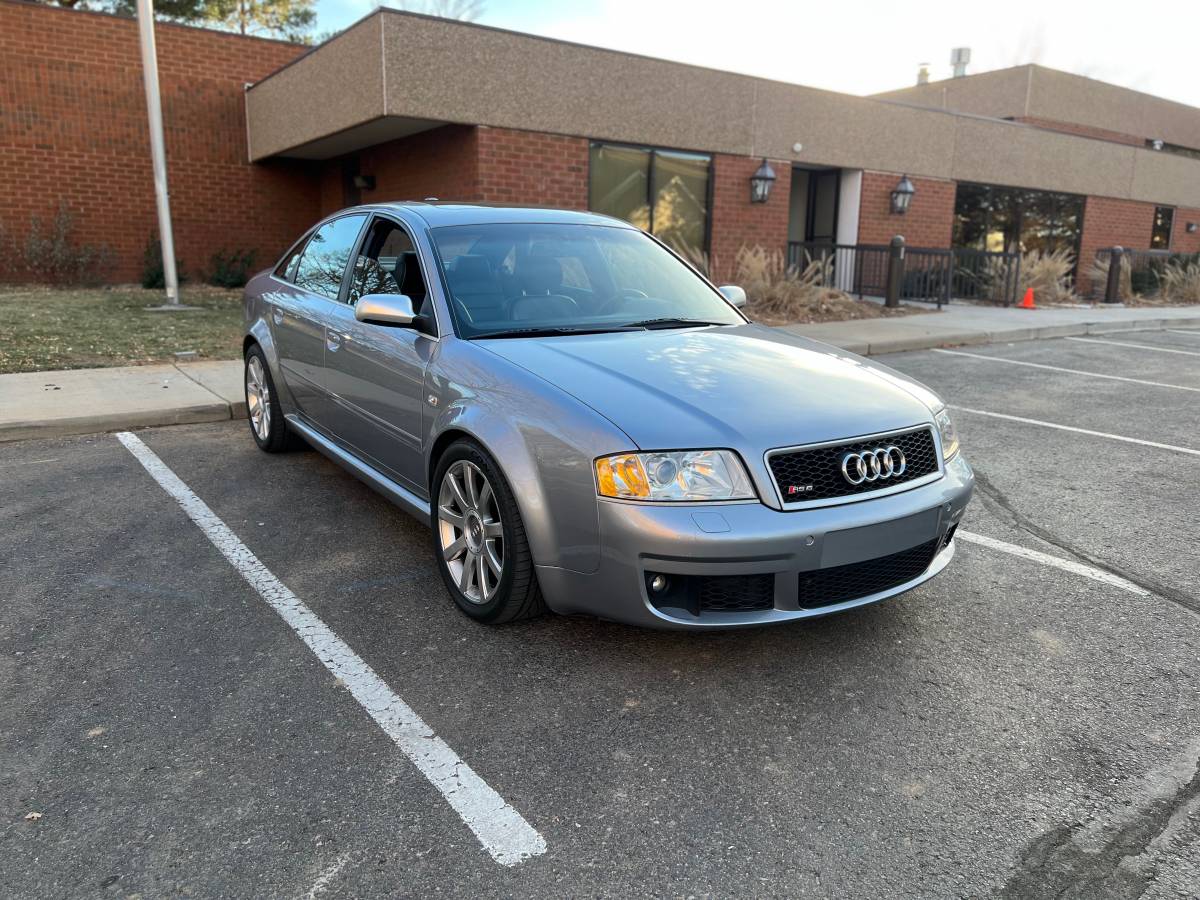
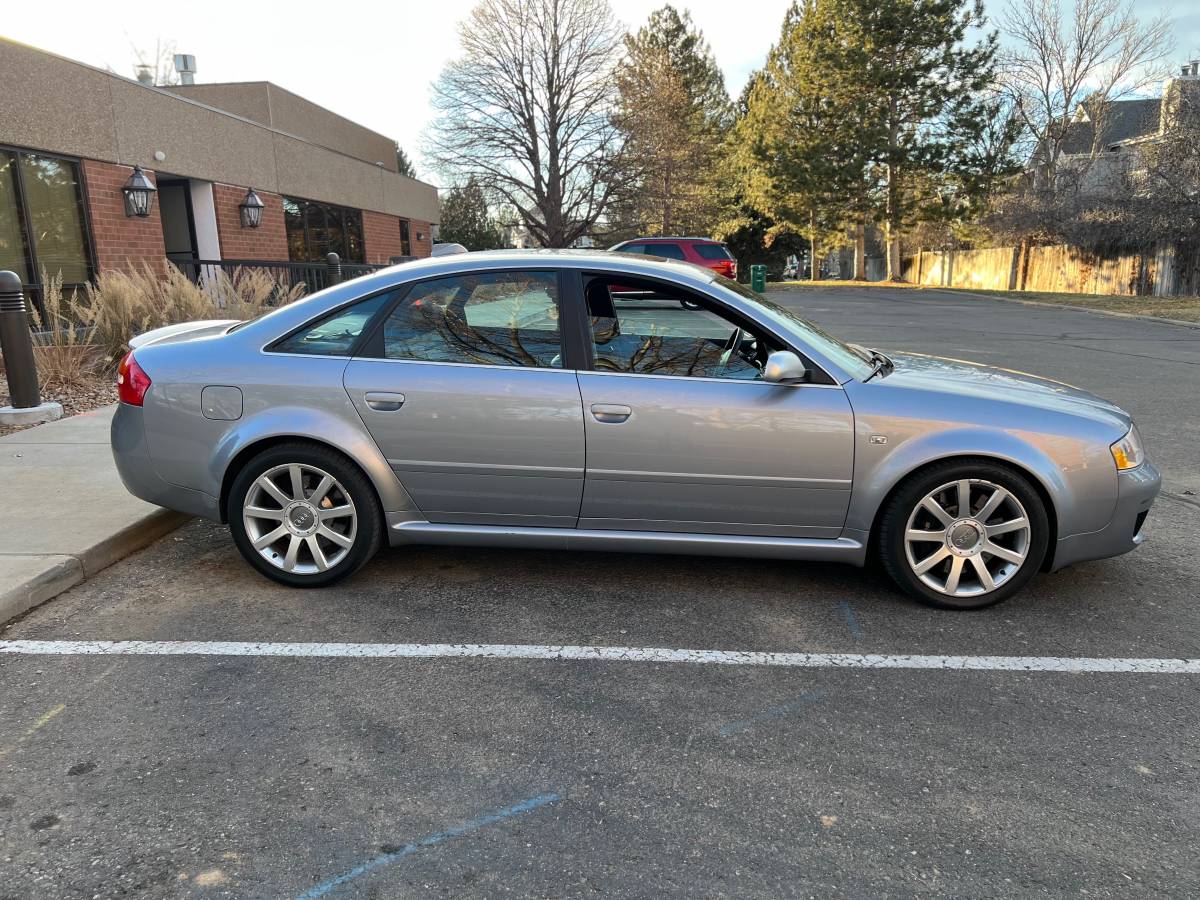
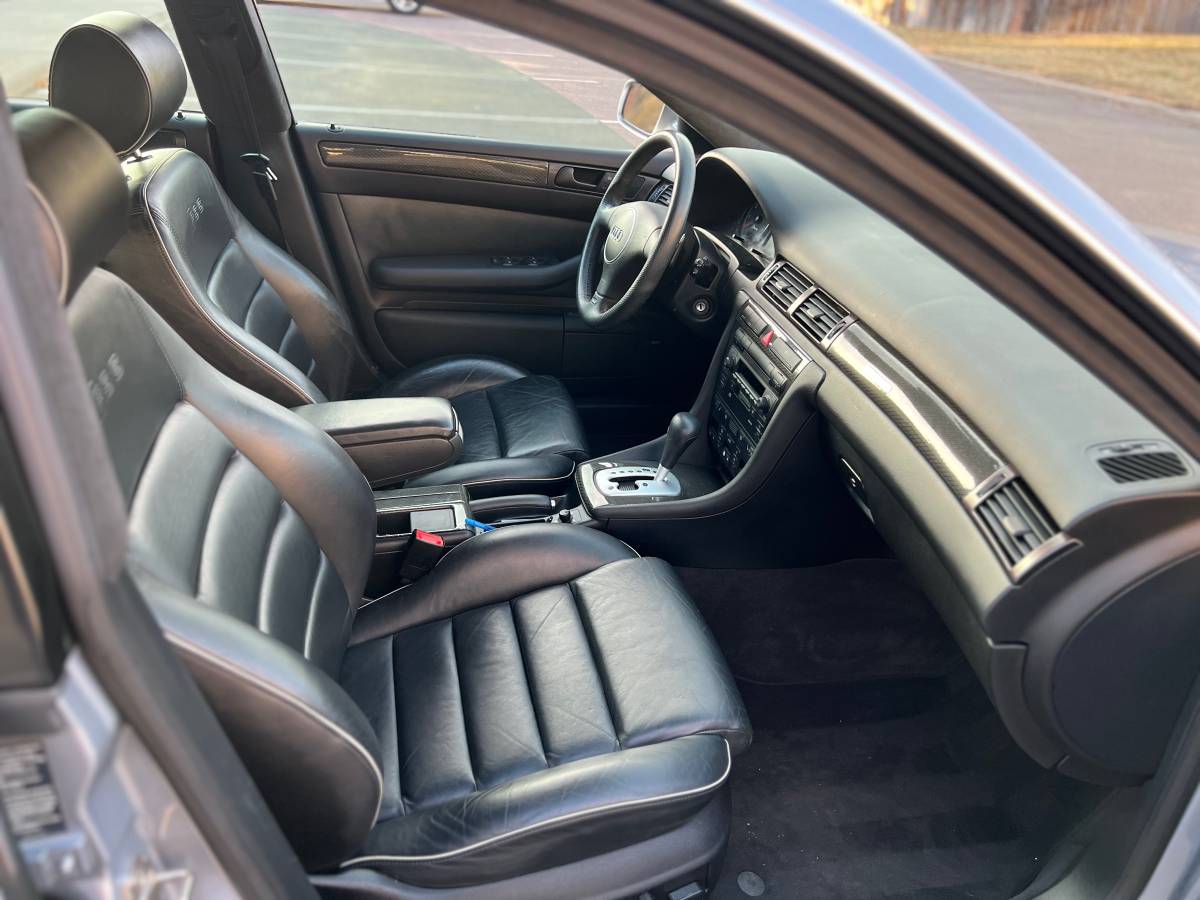
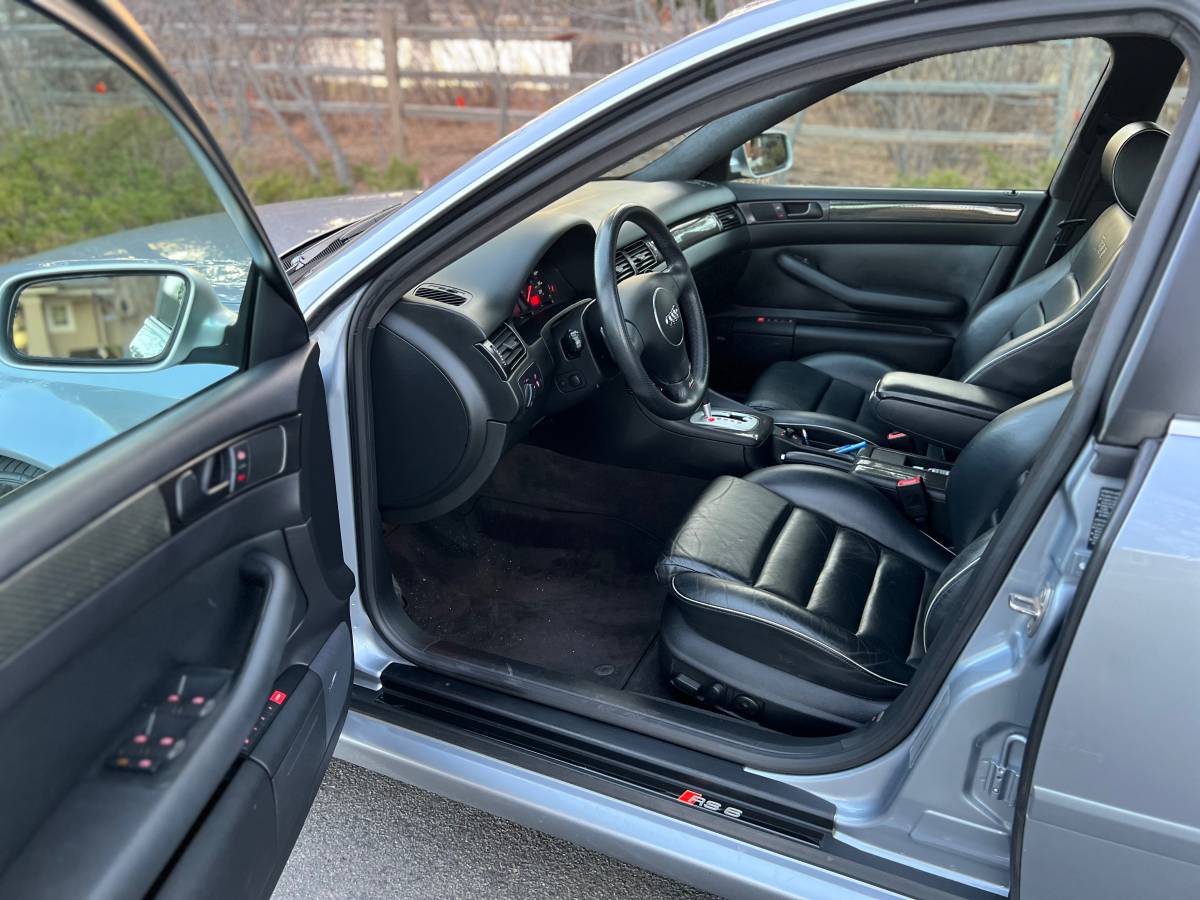
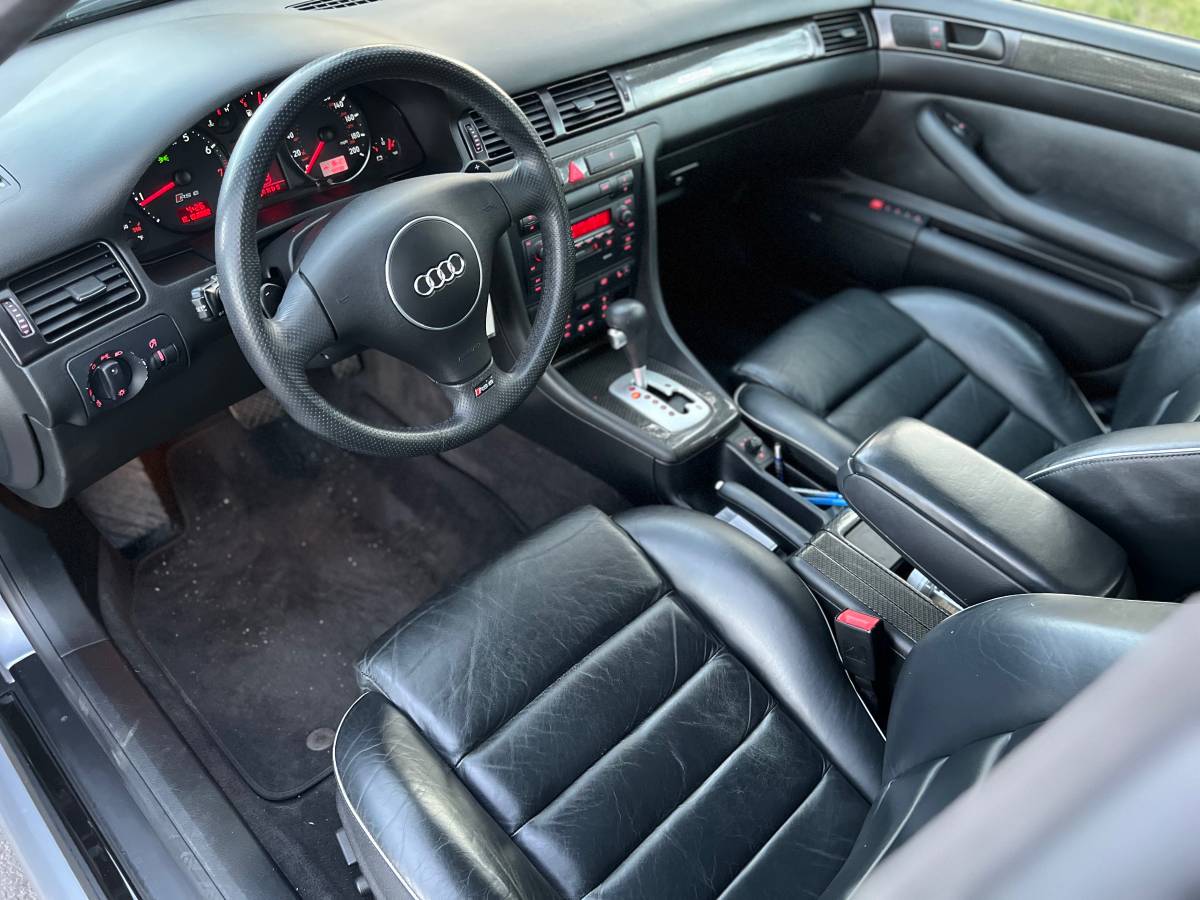
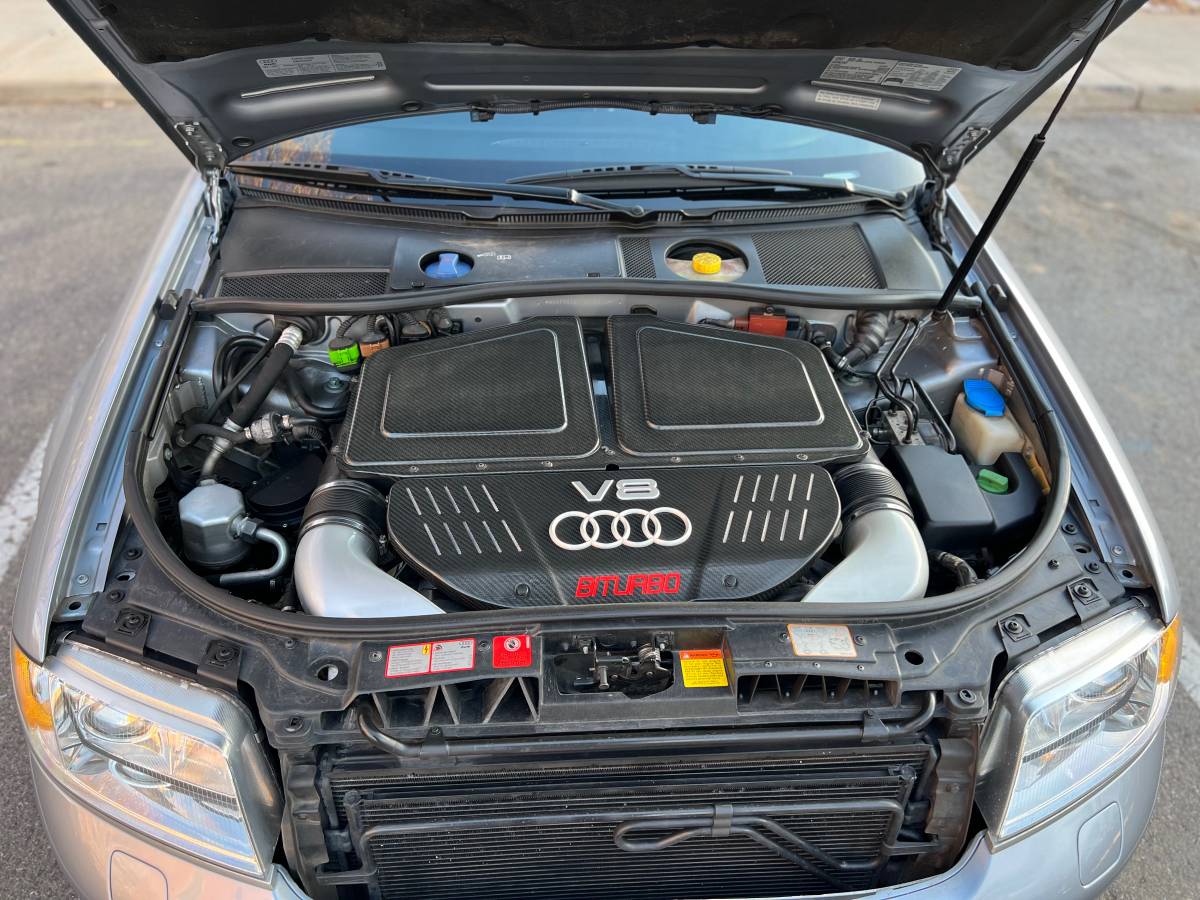

- COMMENTS -